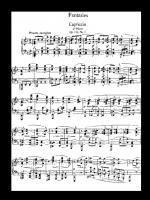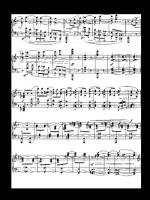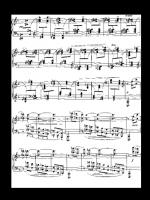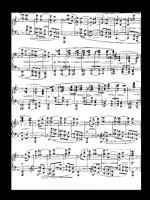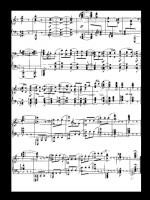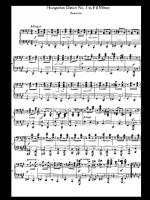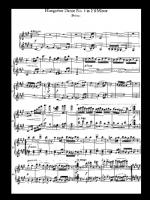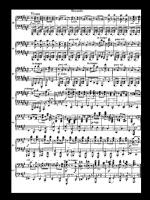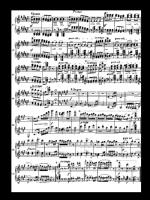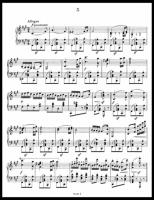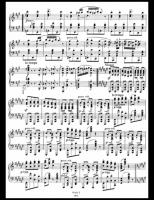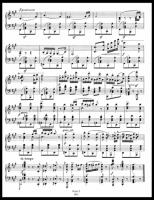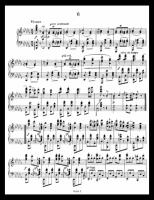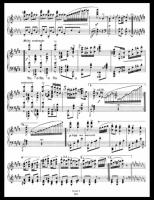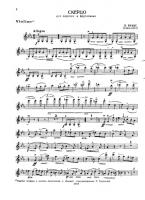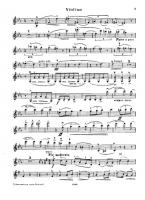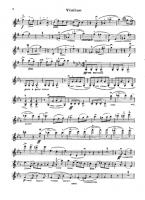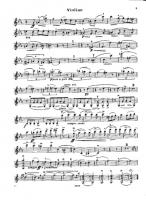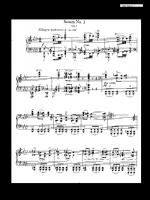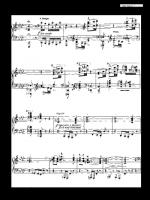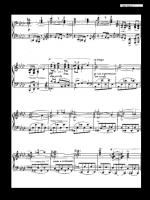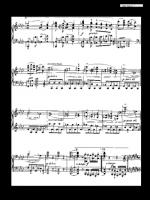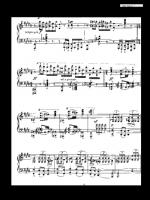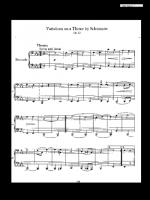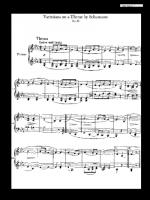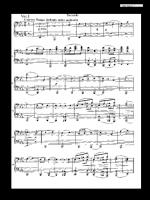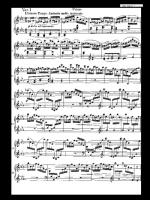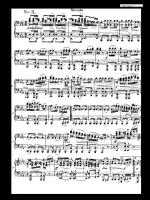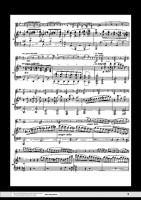Brahms Sheet Music
 Johannes Brahms (May 7, 1833 â April 3, 1897) was a German composer of the Romantic period. He was born in Hamburg and in his later years he settled in Vienna, Austria.
Johannes Brahms (May 7, 1833 â April 3, 1897) was a German composer of the Romantic period. He was born in Hamburg and in his later years he settled in Vienna, Austria.Brahms maintained a Classical sense of form and order in his works â in contrast to the opulence of the music of many of his contemporaries. Thus many admirers (though not necessarily Brahms himself) saw him as the champion of traditional forms and "pure music," as opposed to the New German embrace of program music.
Brahms venerated Beethoven: in the composer's home, a marble bust of Beethoven looked down on the spot where he composed, and some passages in his works are reminiscent of Beethoven's style. The main theme of the finale of Brahms's First Symphony is reminiscent of the main theme of the finale of Beethoven's Ninth, and when this resemblance was pointed out to Brahms he replied that any ass â jeder Esel â could see that.
Ein deutsches Requiem was partially inspired by his mother's death in 1865, but also incorporates material from a Symphony he started in 1854, but abandoned following Schumann's suicide attempt. He once wrote that the Requiem "belonged to Schumann". The first movement of this abandoned Symphony was re-worked as the first movement of the First Piano Concerto.
Brahms also loved the Classical composers Mozart and Haydn. He collected first editions and autographs of their works, and edited performing editions. He also studied the music of pre-classical composers, including Giovanni Gabrieli, Johann Adolph Hasse, Heinrich Schütz and especially Johann Sebastian Bach. His friends included leading musicologists, and with Friedrich Chrysander he edited an edition of the works of François Couperin. He looked to older music for inspiration in the arts of strict counterpoint; the themes of some of his works are modelled on Baroque sources, such as Bach's The Art of Fugue in the fugal finale of Cello Sonata No. 1, or the same composer's Cantata No. 150 in the passacaglia theme of the Fourth Symphony's finale.
Brahms - Symphony No. 2 in D, Op. 73 Flute Sheet Music
Advertisement
Advertisement
Please click on the button to get the sheet music
You can share this sheet on your Twitter or Facebook account to let your friends know too!
Comments about Symphony No. 2 in D, Op. 73 by Brahms
There are no comments yet
Name (required)
Email (required, will not be published)
Email (required, will not be published)
Total 0/1000 chars
Other music sheets of Brahms
Piano
3
pages
130.02KB - 986d ago



Piano
4
pages
178.31KB - 1911d ago




Search for Free Sheet Music
You can make a search through the entire collection of sheets.
You can make a search through the entire collection of sheets.
Latest Artists
Jamey Aebersold
× 1
John Bucchino × 1
Blink 182 × 1
Craig Carnelia × 1
Cab Calloway × 1
Raul Di Blasio × 1
Kirsten Guenther × 1
Dragon Ball × 1
Luis Pedro Bedmar Estrada × 1
Bela Bartok × 2
Ben Jelen × 1
Grant Kirkhope × 1
Antonin Dvorak × 2
Piyano × 1
Nino Rota × 1
Howie Day × 1
Bright Gain × 1
Butch Hartman × 1
Yanni × 1
The Supremes × 1
Mika Nakashima × 1
Jekyll and Hyde × 1
Lenny Kravitz × 1
Hugues Aufrey × 1
Borodin × 1
Neil Diamond × 1
Robert Wells × 1
Bert Kaempfert × 1
Christmas carols and songs × 1
Chris Tomlin × 1
Nguyen Duy × 1
Josephine Cheong × 1
Lars Winnerbäck × 2
Chabrier × 1
Ralph Vaughan Williams × 2
Edvard Grieg × 1
Sungkyunkwan University stu... × 1
Yuki × 1
Nguyeãn Tuaán × 1
George Gershwin × 6
Gundam Seed Destiny × 1
BHS × 1
Daniel Johnston × 1
Francis Poulenc × 2
Keith Emerson × 1
Harold Arlen × 1
Guillaume Lekeu × 1
Stephen Sondheim × 2
Howard Shore × 2
David Wise × 1
John Bucchino × 1
Blink 182 × 1
Craig Carnelia × 1
Cab Calloway × 1
Raul Di Blasio × 1
Kirsten Guenther × 1
Dragon Ball × 1
Luis Pedro Bedmar Estrada × 1
Bela Bartok × 2
Ben Jelen × 1
Grant Kirkhope × 1
Antonin Dvorak × 2
Piyano × 1
Nino Rota × 1
Howie Day × 1
Bright Gain × 1
Butch Hartman × 1
Yanni × 1
The Supremes × 1
Mika Nakashima × 1
Jekyll and Hyde × 1
Lenny Kravitz × 1
Hugues Aufrey × 1
Borodin × 1
Neil Diamond × 1
Robert Wells × 1
Bert Kaempfert × 1
Christmas carols and songs × 1
Chris Tomlin × 1
Nguyen Duy × 1
Josephine Cheong × 1
Lars Winnerbäck × 2
Chabrier × 1
Ralph Vaughan Williams × 2
Edvard Grieg × 1
Sungkyunkwan University stu... × 1
Yuki × 1
Nguyeãn Tuaán × 1
George Gershwin × 6
Gundam Seed Destiny × 1
BHS × 1
Daniel Johnston × 1
Francis Poulenc × 2
Keith Emerson × 1
Harold Arlen × 1
Guillaume Lekeu × 1
Stephen Sondheim × 2
Howard Shore × 2
David Wise × 1






































